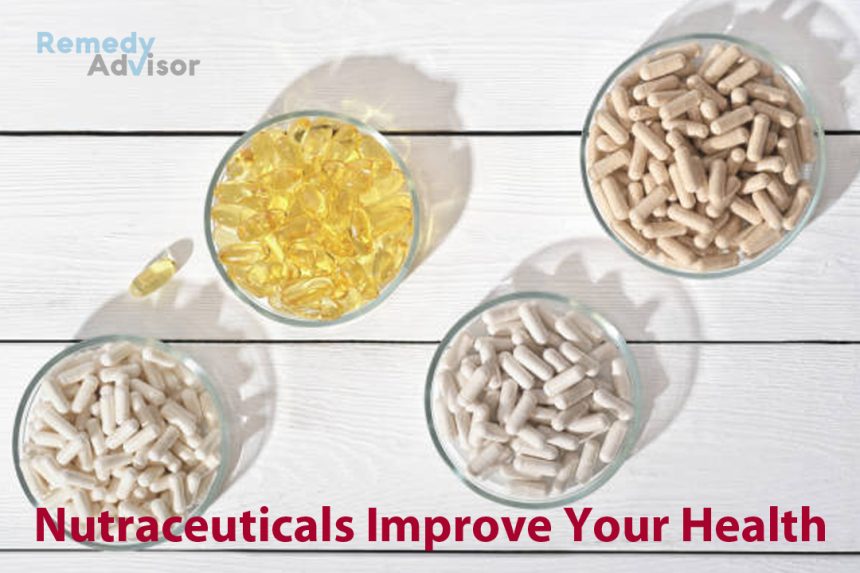Echinacea, St. John’s wort and other supplements have become big sellers in this country. But most Americans have yet to discover the full array of herbs, vitamins and minerals that can be used to relieve or prevent many health conditions.
Known as nutraceuticals, these supplements are derived from or, in some cases, mimic chemically active compounds found in plants.
Unlike over-the-counter or prescription drugs, which typically treat specific symptoms, some nutraceuticals may reduce oxidative damage by free radicals, which can contribute to heart disease and other chronic conditions. For some ailments, they can be just as effective as drugs but usually cause fewer side effects and cost less. Ask your doctor which products might be appropriate for you.
Fatigue
A century ago, the average American slept 10 hours a night. Now the average American gets only seven hours of sleep each night. To curb fatigue, try…
• Coenzyme Q10 (CoQlO)
30 milligrams (mg) twice daily. It plays a vital role in the production of adenosine triphosphate (ATP), a molecule that is used throughout the body as a source of energy.
Helpful: Combine CoQlO with 60 mg of the amino acid carnitine twice daily. This regimen activates energy-producing components (mitochondria) inside cells, which may boost energy and stamina.
• Ginseng
Begin with 100 mg once a day. The dose can be gradually increased up to 300 mg twice daily. Ginseng may function as a mild stimulant and has been used in Asian cultures to increase stamina and enhance well-being.
Caution: Ginseng can be harmful for people with high blood pressure, angina, headaches or hyperthyroidism.
High blood pressure
Several of my patients have tried as many as four blood pressure drugs without being able to control their condition. Ensuring adequate levels of certain nutrients may improve blood pressure control…
• Essential fatty acids (EFAs)
Found in salmon and other cold-water fish, flaxseed, walnuts and other nuts, EFAs may help prevent arterial damage caused by high blood pressure. Sprinkle flaxseed on salads and cereals. Eat cold water fish at least twice a week.
• Magnesium
750 mg daily. It helps regulate the relaxation and constriction of blood vessels. This may lower blood pressure.
• Potassium
2,000 mg daily. It is essential in regulating heartbeat. It can lower systolic pressure (upper number) by four points and diastolic pressure (lower number) by three points, according to a recent study.
Caution: Limit supplemental potassium to 500 mg daily. Get the remainder of your daily intake from potassium-rich foods apricots, bananas, cantaloupe, potatoes and spinach.
Memory problems
• Docosahexanoic acid (DHA)
3 to 6 g daily. DHA is the most abundant fatty acid in the brain, but the modern diet may not provide enough. Foods that is rich in DHA include eggs, organ meats, cold-water fish and wild game.
• Foliate
800 micrograms (mc) daily. It lowers levels of the blood protein homocysteine, reducing the risk for stroke and other vascular events that can lead to dementia. Recent research suggests that low levels of foliate may be linked to Alzheimer’s disease.
• Ginkgo
60 mg twice daily. It increases blood flow to parts of the brain that lack sufficient circulation. It has no effect when blood flow is normal.
Caution: Ginkgo interferes with blood clotting. It should not be used by people taking non-steroidal anti-inflammatory drugs (NSAIDs), such as aspirin, ibuprofen, etc., or prescription blood thinners, such as warfarin (Coumadin).
• Vitamin E
100 to 400 international units (IU) daily. This antioxidant blocks the oxidation of LDL (bad) cholesterol and may slow the progression of Alzheimer’s disease.
Osteoarthritis
It’s been called “wear-and-tear” arthritis but research suggests that the disorder results from poor cartilage regeneration. To curb osteoarthritis, try…
• Glucosamine
500 mg three times daily. It may improve cartilage thickness and help repair existing damage. For many people, pain relief begins in four weeks.
• Vitamin C
100 mg twice daily. The Framingham Heart Study showed that vitamin C can slow the progression of pain due to osteoarthritis of the knee.
Prostate enlargement
More than half of men age 60 and older suffer from prostate enlargement. Benign prostatic hypertrophy (BPH) can result in urinary frequency, irritation or difficulty urinating. To curb symptoms of prostate enlargement, try…
• Pygeum africanum
100 to 200 mg daily. This African herb contains pentacyclic triterpenes, chemicals that shrink prostate tissue. It also reduces prostate irritation.
• Saw palmetto
160 mg twice daily. It may reduce prostate irritation within four weeks. Finasteride (Proscar), a prescription drug often prescribed for BPH, generally takes up to four months to work.
Caution: Taking saw palmetto may mask a high prostate specific antigen (PSA) level. Before taking saw palmetto, see your doctor for a baseline PSA test.
• Zinc
15 to 30 mg daily. It is important for normal prostate health and boosts immune function.
Good food sources: Pumpkin seeds, red meat, shellfish, oysters, nuts and wheat germ.







